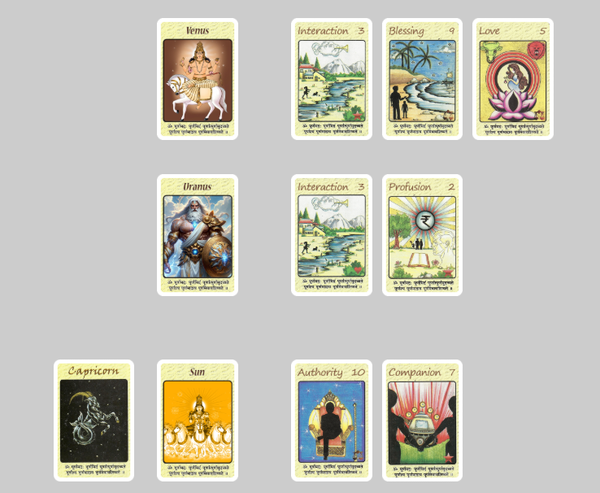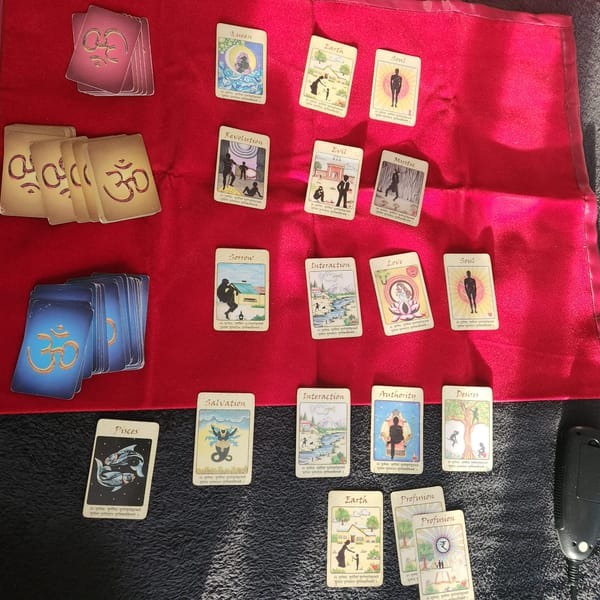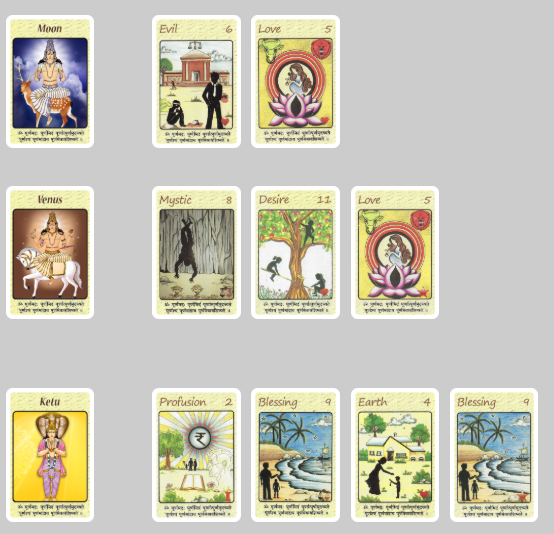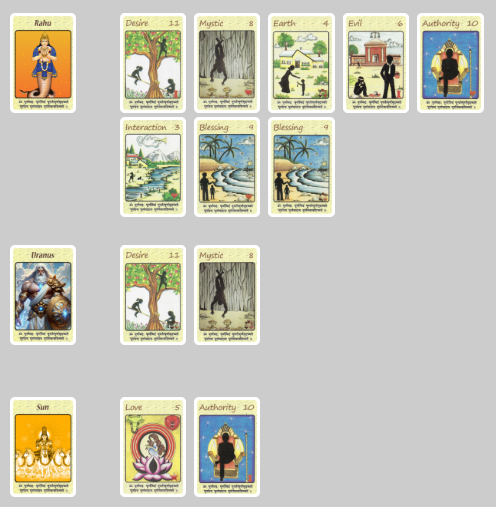Veda - Dyaus and Prithivi: The Ancient Celestial Couple of the Vedas
Dyaus and Prithivi, the ancient celestial couple of the Vedas, symbolize the sacred interplay of sky and earth, shaping the rhythm of life in Hindu thought. #occultsanctum #VedicDeities #DyausAndPrithivi #Hindu #Mythology #Veda #Dyaus #Prithivi
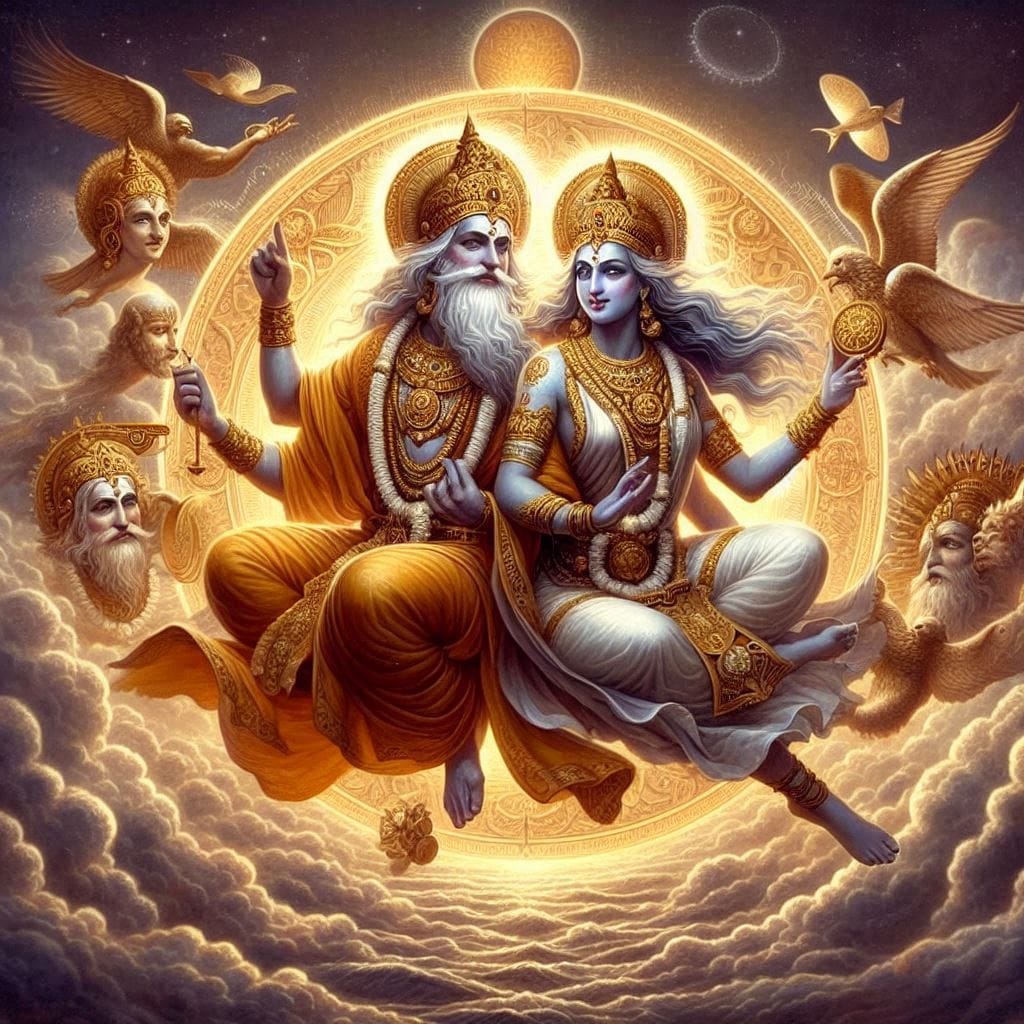
In the earliest hymns of the Rig-Veda, Dyaus (Heaven) and Prithivi (Earth) emerge as primordial deities, revered as the divine parents of the cosmos. Their union symbolizes the sacred interplay of sky and soil, a cosmic duality that breathes life into existence. Yet, their legacy is shrouded in mystery, marked by shifting myths and evolving worship that reflect the dynamic spirituality of ancient India.
The Primordial Parents
Dyaus and Prithivi are celebrated as creators and sustainers of all life. The Vedas praise them as "great, wise, and energetic," bestowing righteousness and immortality upon their offspring. They are credited with crafting all creatures, their benevolence nurturing both gods and mortals. Yet, their origins are paradoxically unclear: some hymns claim Indra, the storm god, forged them, while others attribute their creation to Soma, the lunar deity. This ambiguity sparks profound questions within the Vedic texts: "How have they been produced? Who of the sages knows?"
The Rise of Indra and the Fading of Dyaus
Over time, Dyaus’s prominence waned as Indra ascended to become the king of the gods. Scholars suggest this shift mirrored environmental and cultural changes. As the early Vedic people migrated into India’s monsoon-driven landscape, the life-giving rains governed by Indra eclipsed the distant, abstract sky-god Dyaus. Indra’s role as a pluvial deity—controller of storms and fertility—resonated more deeply in a land dependent on seasonal rains. This transition is subtly echoed in linguistic roots: the name Indra may derive from terms meaning “to drop,” tying him to the nourishing rains that Dyaus once symbolized.
Prithivi: The Earth Goddess and Her Mythic Birth
While Dyaus faded, Prithivi’s legacy endured, evolving through rich allegory. The Vishnu Purāna recounts her origin in a tale blending morality and metaphor:
King Venā, a tyrant, was slain by sages for his impiety. From his corpse emerged two beings—a dark dwarf (symbolizing sin) and the radiant Prince Prithu. Faced with famine, Prithu vowed to force the Earth, personified as a cow, to yield sustenance. The Earth, fleeing his wrath, bargained: she would restore vegetation if Prithu leveled her terrain and became her “milker.”
Prithu transformed the chaotic land into habitable plains, and with Manu (the progenitor of humanity) as the “calf,” he milked the Earth-cow, releasing seeds and grains that birthed agriculture. This myth marks Prithivi as a life-giving mother, her name forever linked to Prithu, her “milker” and guardian. The tale allegorizes humanity’s shift from nomadic life to settled farming, celebrating Prithivi as the source of civilization’s bounty.
Symbolism and Evolution
The Earth-cow allegory underscores Prithivi’s role as a nurturer who sustains all beings. Yet her identity further evolves in later texts. In another Puranic twist, she springs from the foot of Vishnu, anchoring her to the preserver god’s cosmic authority. This layered symbolism—Prithivi as both independent goddess and Vishnu’s creation—reflects Hinduism’s fluid theology, where deities adapt to philosophical and cultural shifts.
Legacy of Heaven and Earth
Though Dyaus dwindled into obscurity, his name lingers in linguistic echoes like the Greek Zeus and Roman Jupiter (from Dyauspitar, “Heaven-Father”). Prithivi, meanwhile, remains a timeless emblem of fertility and stability. Together, their stories illuminate ancient India’s spiritual journey—from awe of celestial forces to reverence for the nurturing Earth.
In the Vedas, their union was a sacred hymn; in later myths, their roles fragmented, absorbed by newer gods. Yet Dyaus and Prithivi endure as reminders of humanity’s oldest dialogue with the cosmos—a dialogue where sky and earth, once divine parents, became the stage for gods and humans alike to seek meaning and sustenance.
This exploration of Dyaus and Prithivi draws from Vedic hymns, Puranic lore, and the enduring symbolism of nature in Hindu thought. Their tales whisper of an ancient world where heaven and earth were not just elements, but living deities shaping the rhythm of life.
